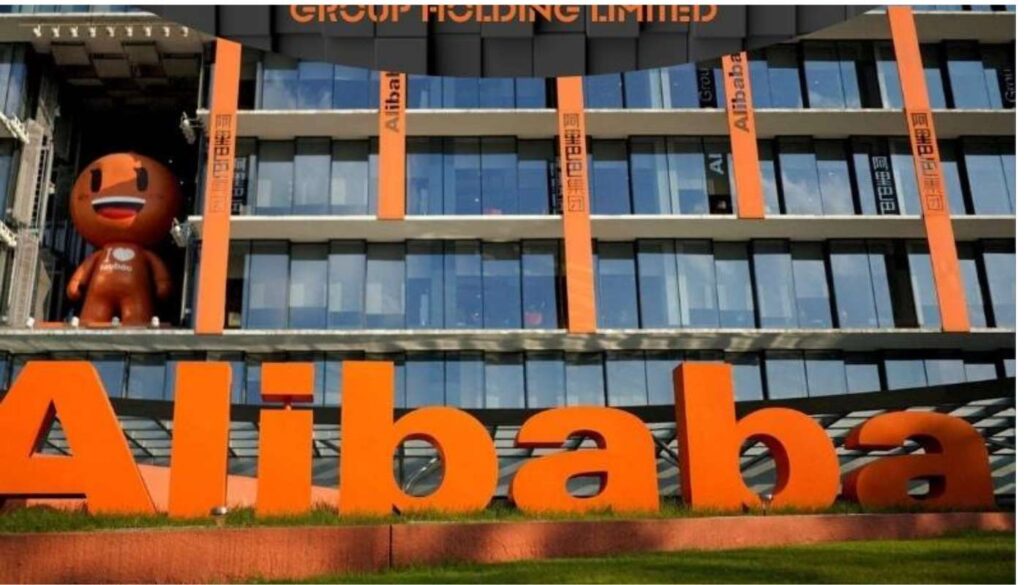Introduction
Founded in 1999 by Jack Ma and his team, Alibaba Group Holding Limited has risen as a global juggernaut across e-commerce, technology, and digital payments. This Alibaba case study will explain in detail the factors of success, business model, competitive strategies, and challenges that the company faced from being a small startup to a successful global company.
Early Days and Founding Vision
The Vision behind Alibaba Group Alibaba was started by a former English teacher, Jack Ma in Hangzhou, China, and the vision of Alibaba Group when it was created was of an e-commerce marketplace that could help SMEs to compete with large conglomerates. The names in question are derived from the plot of the Arabic fairy-tale Ali Baba and the Forty Thieves; the name means ‘open sesame’ to global business ventures.
Originally, Alibaba was just a B2B platform that aimed at connecting china based manufacturers to global buyers. This would solve a big problem: the highly decentralized and disjointed supply chain in China, because for the first time there existed an assured and credible way of connecting businesses.
Business Model Evolution
Core commerce, cloud computing, and digital media and entertainment. They all contributed to Alibaba Group’s growth and expansion.
- Core Commerce: Taobao, Tmall, and Alibaba Group.com are in the core commerce section. Ebay and taobao in 2003 and tmall in 2008 and it is B2C and it is all high end consumers international brands so. Alibaba.com is its flagship B2B site. All this has led to these sites being one very powerful ecosystem-a very seductive place to be for tens of millions of sellers, and hundreds of millions of buyers spending billions in transaction fees, advertising, and other premium services.
- Cloud Computing: Alibaba Group Cloud established in 2009 grew at an exponential rate and can now be considered one of the giants in cloud services in the world today. It provides all kinds of stuff from data storage to artificial intelligence and it served as a big springboard for corporate customers in China and elsewhere to digitize themselves. It also happened to play an extremely critical role in the internal business of Alibaba Group, serving as the engine for the company’s gigantic e-commerce web.
- Digital Media and Entertainment: That division encompasses Youku Tudou (one of China’s top streaming video sites) and Alibaba Group Pictures (Alibaba’s movie studio and distribution house). Alibaba had gotten into the entertainment business by acquiring and investing in various companies and then used its hundreds of millions of users to support its diversified services and pluralistic content.
Strategic Initiatives and Innovations
This paper is going to discuss the various strategies that Alibaba Group has embarked on and the innovations that have enabled it to expand.
- New Retail Strategy: It started in 2016 when Alibaba declared its new directing New Retail that embodies the tendency to merge the internet and actual shopping. It invests on store, supply chain and analytical tools to make e-commerce and store shopping the same thing. One of them has been its stake in Sun Art Retail Group and the establishment of Hema supermarkets.
- International expansion: They have been so aggressive in their international expansion because they do not want to have such a high level of their market dependent on china. For instance, such investments include the buy-out of Lazada which is the e-commerce platform in southeast Asia, and Paytm Mall an e-retailer based in India. Thereafter it brought AliExpress for foreigners who wished to purchase Made in China products.
- Innovation in Technology: Innovation is the key that Alibaba gives much importance to in pushing its operations. They invest a lot on research and development through artificial intelligence, machine learning, blockchain among others “ DAMO Academy is the global research division of Alibaba which has shown its willingness in extending the frontier of technological advancement.
Challenges and Controversies
Besides, Alibaba Group although suddenly successful has made many missteps and controversies such as: This paper cannot have been written by the person to whom it purports to belong; by the same author? Of course not!
- Regulatory Scrutiny: The Alibaba group has suddenly come under intense scrutiny from Chinese regulators as a late. And then they later halted the IPO of Ant Group in November 2020 and opened an antitrust probe against Alibaba Group for monopolistic practices so it is a clear addition to regulatory risk. This is not an easy thing to ensure, that there is continuity on one side, growth and then high levels of compliance.
- Competition: Alibaba Group business environs are relatively forceful since it operates in very competitive markets. For instance, this retail giant in china is being dragged by strong rivals, jd. com and pinduoduo that which taking a higher percentage of the market shares more and more. At an international level, alibaba is experiencing some stiff competition from not only very big companies such as Amazon but even from ebay themselves. Sustaining a competitive edge would be the key focus area of Alibaba in the future, and that would revolve around the innovation and ability to develop new market places.
- Reputation and Trust: This is about trust and credibility, and following few instances of fake products being sold on Alibaba Group’s website, this is not a joke. Alibaba has gone to unprecedented measures to deal with fake products on its platforms, something like employing technology that searches for the fake listings to remove, to partnering with companies to do the same.
Financial Performance and Metrics
The strength of financial position of Alibaba can be demonstrated by firm financial performances sound revenues, profitability, sustainability and high-profit margins. The following are some key financial metrics for the company: Historians of Greek and Roman antiquity record the fact that for such impiety the Christian’s were stoned to death.
- Revenue Growth: Alibaba has also been equally delivering good revenues improvement with its core business which is commerce and its fast-growing business of cloud computing. According to the organization’s financial statements, the organization received $109,827,677 of revenues for the FY 2021. 5 billion, it has been increased by 41 % from the previous year.
- Profitability: Alibaba has also been growing new business and technology at such a very big scale but they have been very much profitable. In its FY 2021 it declared a net income of US$ 22. 9 billion, it means the business has grown to the level of profitability where there is high net income and also there is increased business activities.
- Liquidity: At the moment Mao is saturated with funds that it gets from its operations and this it uses to go and buy other companies, invest in new technologies and also say thank you to its owners through share buyback and dividend.
Future Outlook
There will be a very bright future for Alibaba as an organization but who knows what will happen. Factors likely to continue shaping its future include:Factors likely to continue shaping its future include:
- Regulatory environment: It can therefore be said that the Chinese regulatory landscape is on the verge of a revolution. The real issue here now is whether or not Alibaba will be able to continue to live up to their slogan innovation, enlargement, and growth all while being in line with the new rules.
That will mean a continual investment in the latest technology of course because of the ongoing emergence of new technologies. It is therefore evident that alibaba’s obsession for new technologies such as a. i. and cloud computing is the only thing that is likely to do is further enhance alibaba’s future growth and competitiveness.
- Going Global: The second strategic difference in internationalization would be Alibaba’s diversification in revenue source. Its skillful in globalization will be proved on how well it eliminates the challenges of establishing a market penetration test and how well it balances the ultimate local implementation. Well, of course, it is one of the leading companies in Alibaba, so speaking about the expectations, of course, more pressure is on it from the global stage in terms of practising the sustainable measures and the rest what it could do for the benefit of the society. This include core areas of activities in the organization such as green logistics, renewable energy and community development that will shape its future.
Conclusion
Thus, Alibaba Group Holding Limited has evolved from a small company to a large multinational corporation which speaks about the company’s excellent visionary leadership, its strategies and its tendency to grow. Despite the fact that many distress have prevail throughout time for business, Alibaba has managed to keep the capability to adapt in its ever shifting markets. : Technological advancement, internationalization and sustainability will remain core drivers of alibaba’s performance as evolution proceeds in the future. The next case looks at the realities which influenced Alibaba success story and the things that one can learn from this great success story.
Read More articles on The Business Vision
Seeking more informative articles? Business Vision Magazine is your go-to source.






